"We are committed to focusing on the theoretical frontiers and management practice problems in the field of emergency management, building an intelligent emergency management industry-education integration platform that will integrate emergency management think tanks, scientific research centers, service centers, education bases and international cooperation. This platform aims to contribute Shanghai’s experience and solutions towards the construction of emergency coordination in the Yangtze River Delta and the construction of a national emergency management system with Chinese characteristics", said Zhao Laijun, dean of USSTBS, on the morning of May 9th, at the thematic event of Intelligent Emergency Management of Complex Systems at the 2023 Yangtze River Delta International Emergency Disaster Reduction and Rescue Expo.
During the event, Gui Yucai, deputy director of Shanghai Emergency Management Bureau, and Gu Chunhua, deputy secretary of the CPC Party Committee of USST, signed the Framework Agreement on Strategic Cooperation on Emergency Management between Shanghai Emergency Management Bureau and the USST. They unveiled the School of Intelligent Emergency Management (SIEM) of USST. The two sides will carry out all-round and multi-level cooperation in building SIEM in different areas, such as scientific research, talent training, cooperation and exchanges, etc., and SIEM will promote the innovation on emergency management theory, science and technology, and systems.
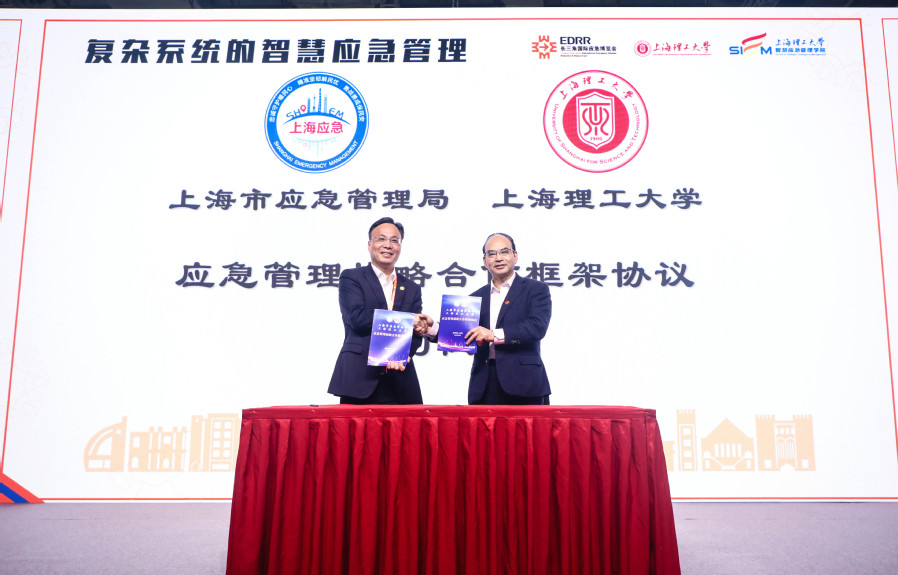
Signing the agreement
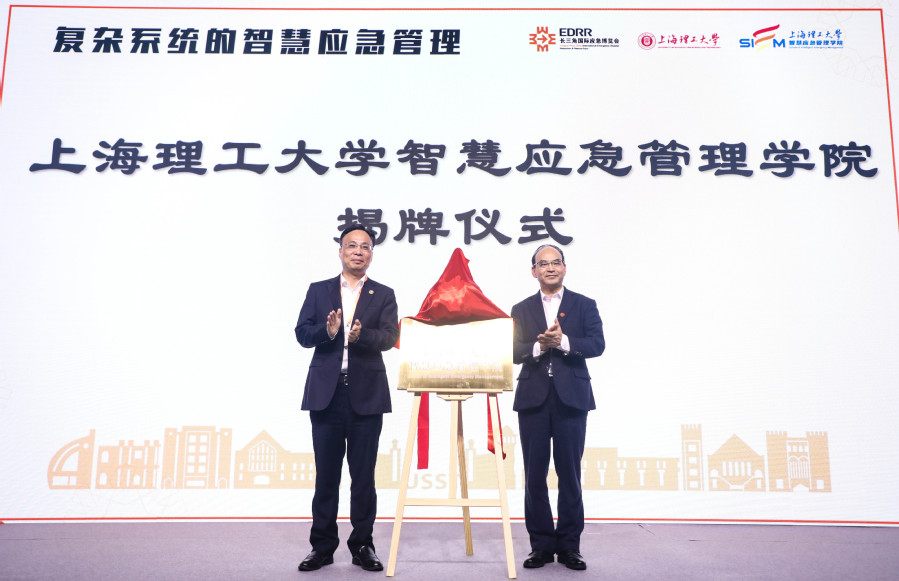
The Unveiling ceremony
Gu Chunhua said that by relying on the system management platform of USST, combining with the interdisciplinary advantages of science, engineering, economics and management, and hoping to strengthen the in-depth cooperation between universities and emergency management departments, the USST and the Shanghai Emergency Management Bureau jointly established the SIEM of USST. In the future, SIEM will adhere to the use of systematic scientific methods to solve problems. It will focus on emergency management system construction, resilient city development, emergency coordination in the Yangtze River Delta, safe production, hazardous chemical safety management, fire and rescue, emergency shelter and material management. SIEM will incorporate AI, big data, VR/AR technology, digital emergency, and emergency industry interconnection to build an intelligent emergency management research center. It aims to create an industry-education platform that integrates emergency management think tanks, scientific research centers, service centers, education bases, and international cooperation. It strives to develop into a high-level school with outstanding location advantages, remarkable talent training characteristics, distinctive discipline characteristics, advanced software and hardware facilities, and high-quality emergency management decision-making consultation.
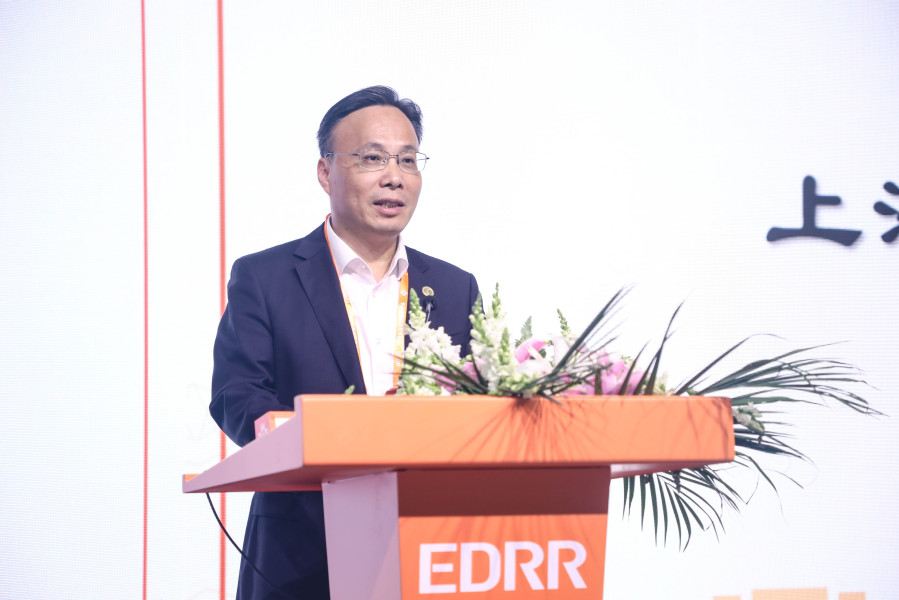
Gu Chunhua delivered a speech
Zhao Laijun introduced the background, construction goals, as well as operation mode of SIEM. He emphasized that after the establishment of SIEM, we will leverage the interdisciplinary characteristics of USST and work closely with the Shanghai Emergency Management Bureau to create influential emergency management preponderant and characteristic disciplines in China. This will be achieved by cultivating emergency management talents with interdisciplinary backgrounds, practical experience and theoretical knowledge; by carrying out high-level intelligent emergency management research for the characteristics of megacities; and by building an intelligent emergency management laboratory of USST. SIEM will provide support for the modernization of Shanghai's emergency management system and emergency management capabilities.
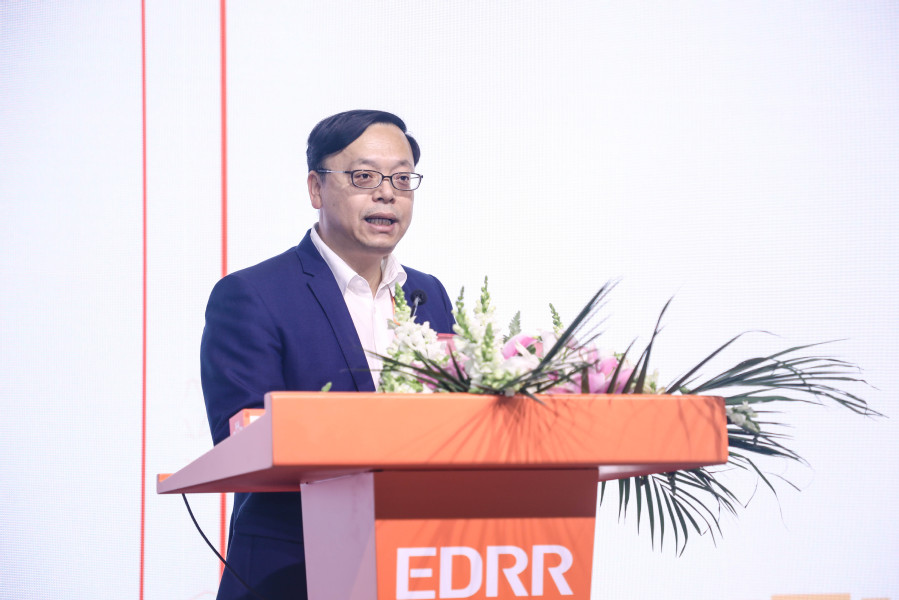
Zhao Laijun gave an introduction to SIEM
Fan Weicheng, academician of the Chinese Academy of Engineering and dean of the Institute for Public Safety Research of Tsinghua University, congratulated the establishment of the SIEM in a video speech. He expressed his hope for giving full play to the advantages of scientific research and innovation and exploring the government-school cooperation model of emergency management. He said that the cooperation model between USST and the Shanghai Emergency Management Bureau is a distinctive model that closely integrates emergency management research and practice. He believes that the two sides could promote emergency management innovation on theory, science, and technology, as well as systems through joint scientific research, talent training, cooperation, and exchanges. He hopes to contribute Shanghai's experience and solutions to the emergency coordination in the Yangtze River Delta and to the construction of a national emergency management system with Chinese characteristics.
Gui Yucai emphasized the great significance of promoting the modernization of the emergency management system, enhancing the capabilities of the megacity Shanghai, and ensuring high-quality development with high-level security by strengthening the cooperation and joint construction of emergency management departments, colleges and universities, and giving full play to the advantages of the city's colleges and universities in emergency management science and technology research, talent training and think tanks, etc. He also stressed that we should further improve our political stance, enhance our sense of responsibility, and promote the cooperation between government and school in the field of emergency management in Shanghai to a new level; he mentioned that we should give full play to the advantages of both sides, strengthen the integration of resources, and promote the training of Shanghai emergency management talents to a high level. Additionally, he advised that the two sides cooperate closely, strive to become first-class, and promote the construction of Shanghai emergency management disciplines to achieve new results; finally, Gui Yucai stressed the importance of paying close attention to implementation, accelerating the implementation of projects, and promoting new breakthroughs in strategic cooperation in emergency management.
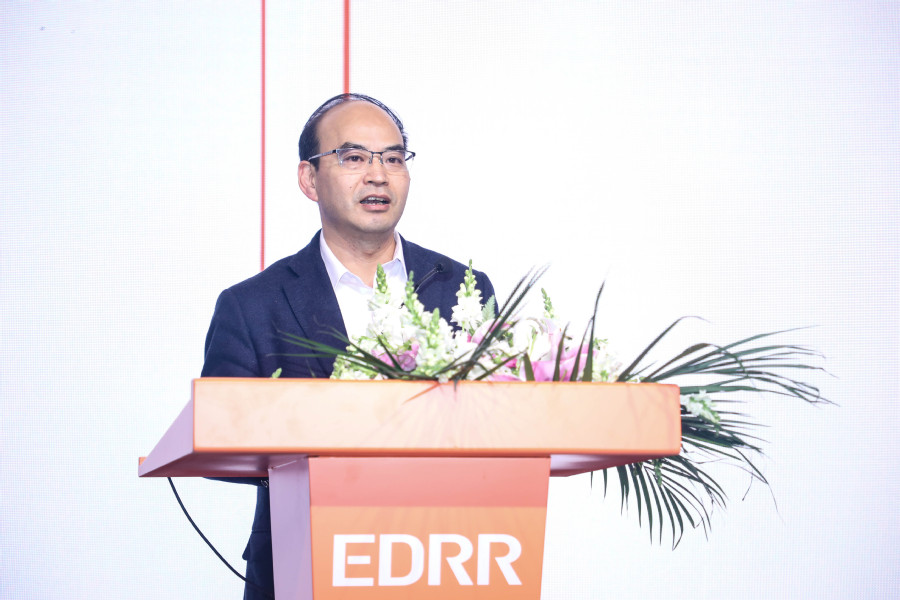
Gui Yucai delivered a speech
During the thematic report of Intelligent Emergency Management of Complex Systems, academician Xue Yusheng from the China Electric Power Research Institute (State Grid), Fang Yudong, deputy director of the big data center of the Ministry of Emergency Management, and Zhang Haibo, deputy dean of the School of Government of Nanjing University, respectively reported on the topics International standards for power system outage defense framework, Construction and application of digital battlefield system for emergency rescue, and Mechanism analysis of emergency management modernization driven by scientific and technological innovation. They discussed the important role of intelligent technology in the emergency management of complex systems.
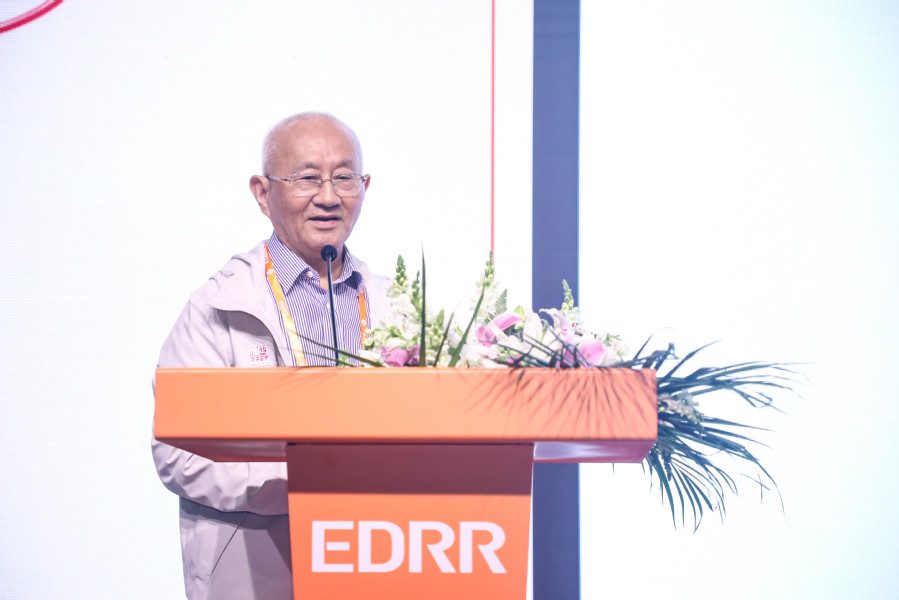
Academician Xue Yusheng delivered a report
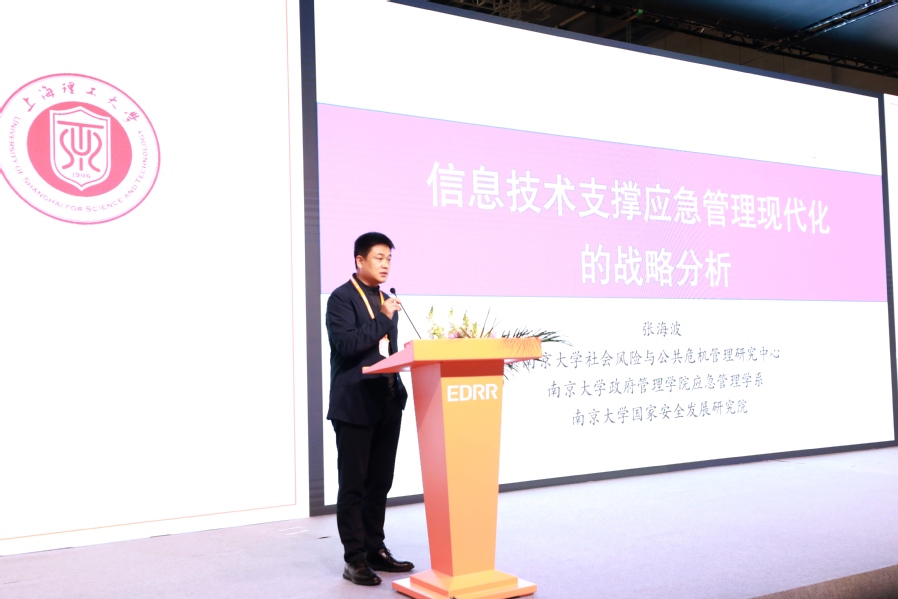
Zhang Haibo delivered a report
Leaders and guests, including representatives from the Shanghai Emergency Management Bureau, relevant schools and departments of USST, Shanghai Fire Research Institute of MEM, Shanghai Institute of Work Safety Science, Shanghai Institute of Disaster Prevention and Relief, Shanghai Work Safety Association, Fudan University, Shanghai Jiao Tong University, Tongji University, East China University of Science and Technology, Shanghai Maritime University, Shanghai Institute of Technology, Shanghai University of Medicine & Health Sciences, Shanghai Jianke Technical Assessment of Construction Co. Ltd., Graphic Design Information Co., Ltd., Shanghai Weimeng Internet of Things Technology Co., Ltd. and other related enterprises and institutions, attended the event.
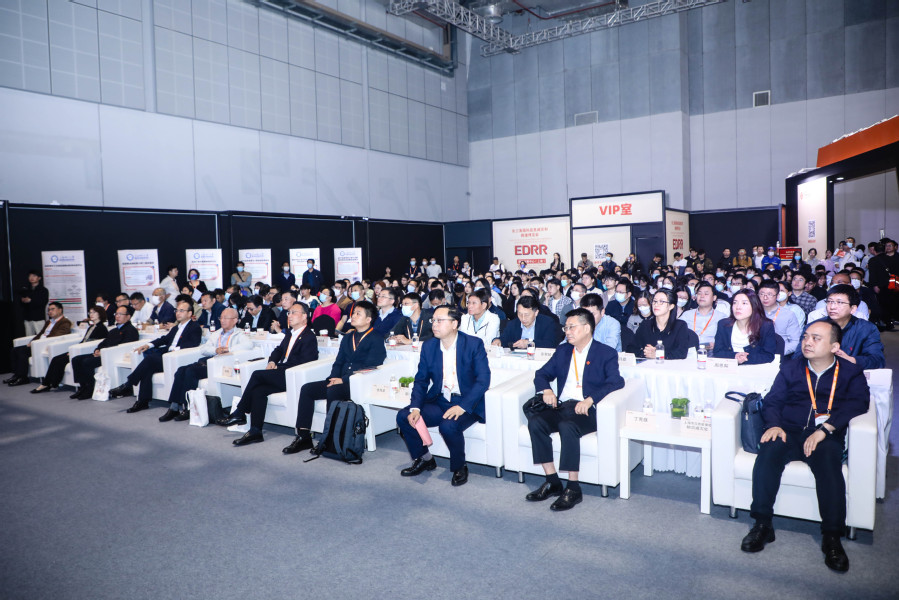
The event site
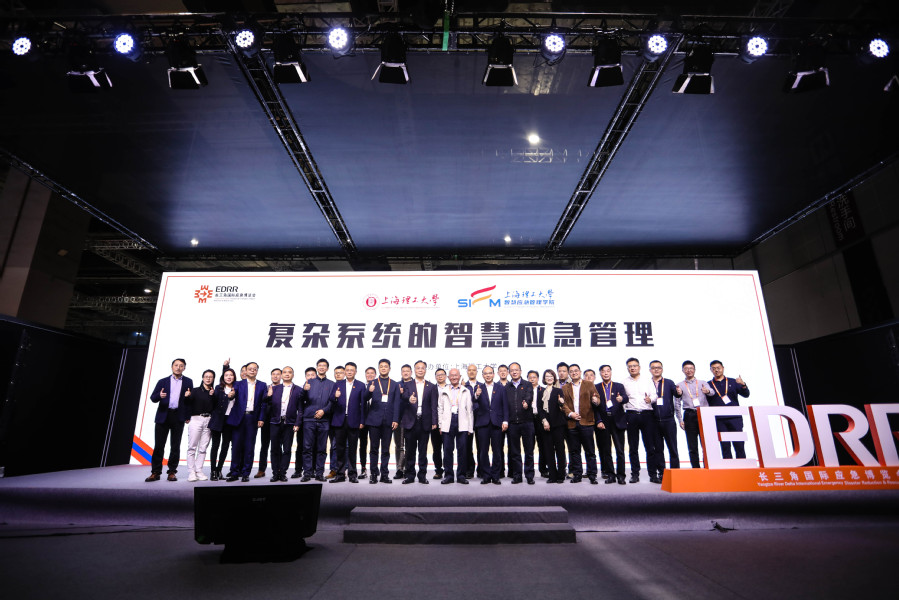
Group photo
Translated by: Bai Yuting
Reviewed by: Nie Rui


